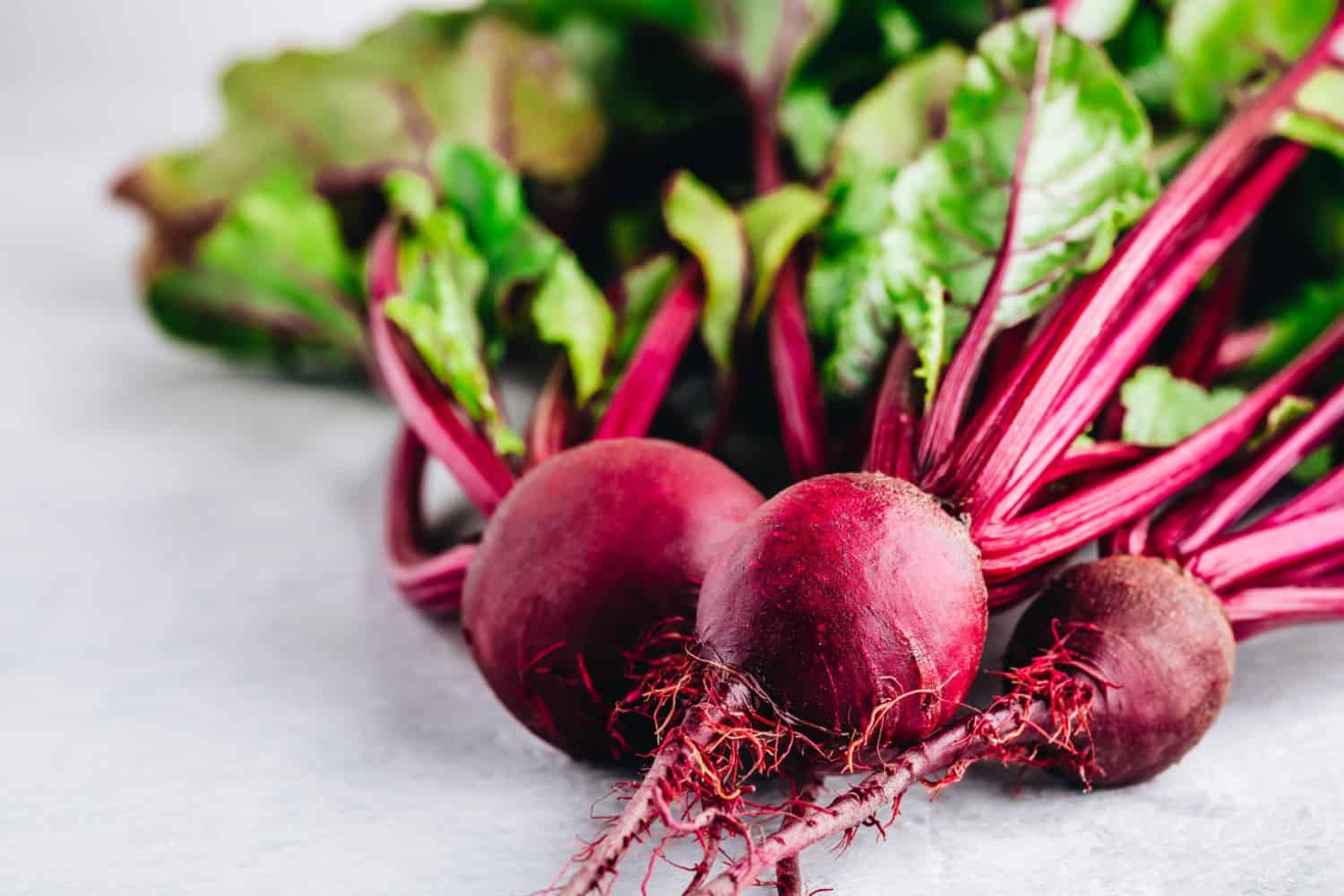Beetroot contains varying amounts of nearly all the vitamins and minerals your body needs. It is particularly rich in certain essential nutrients like folate, manganese, copper, magnesium, potassium, and iron. While it also contains other beneficial compounds such as nitrates. Many of these components of beetroot play a role in boosting our heart health.
Plus, we can consume every part of this remarkable plant, from the leaves to the root. We can also choose to have any of it raw, for example in a yummy raw beetroot coleslaw, or cooked, such as in a beetroot pie.
Beetroot improves heart health
The human body is a complex interlinking system so there are a variety of things that work together to improve the overall health of our organs. In particular, our heart health can be boosted by things such as regular blood pressure and healthy inflammatory responses.
Anti-inflammatory
Controlling inflammation is crucial to maintaining good health. Inflammation plays a vital function within the body but only when it is needed. If we allow inflammation to run wild and become chronic it could lead to many life-altering conditions.
This is one of the areas where beetroot aids the body with many of its beneficial anti-inflammatory compounds. The most noteworthy of these is possibly the betalains in beetroot. These are nitrogen-containing pigments often used as colour additives in food and have the added bonus of also functioning as antioxidants.
Blood pressure
One of the greatest reasons why researchers have performed so many studies with beetroot is because of its ability to help lower blood pressure.
Many scientists believe that the nitrates present in beetroot play a major role in how they aid blood pressure regulation. Once digested, nitrates convert to nitrites which form part of the creation of nitric oxide. Nitric oxide is like a magic elixir for the human body because it helps dilate and constrict your blood vessels. This improves blood circulation which benefits many areas of the human body, including lowering blood pressure. Nitric oxide is one of the main reasons nutritionists consider beetroot to be a superfood.
Folate and B Vitamins
Some of the nutrients that beetroot is particularly high in are B vitamins, the most noteworthy of which is folate (vitamin B9). Folate is associated with good heart health which in turn lowers the risk for heart attack and stroke. It works with other B vitamins to break down homocysteine, an amino acid that can damage the inner walls of your arteries. While also assisting other important processes such as the production of red blood cells.
Raw is Best
Several studies have confirmed that consuming raw beetroot provides the maximum benefits. Cooked beetroot will still have great nutritional value, however, eating or drinking beets raw allows the body to absorb nearly all of the valuable components. If you juice your beetroot the nutrients will be concentrated, although, you will be missing out on most of the fibre when straining the juice.
